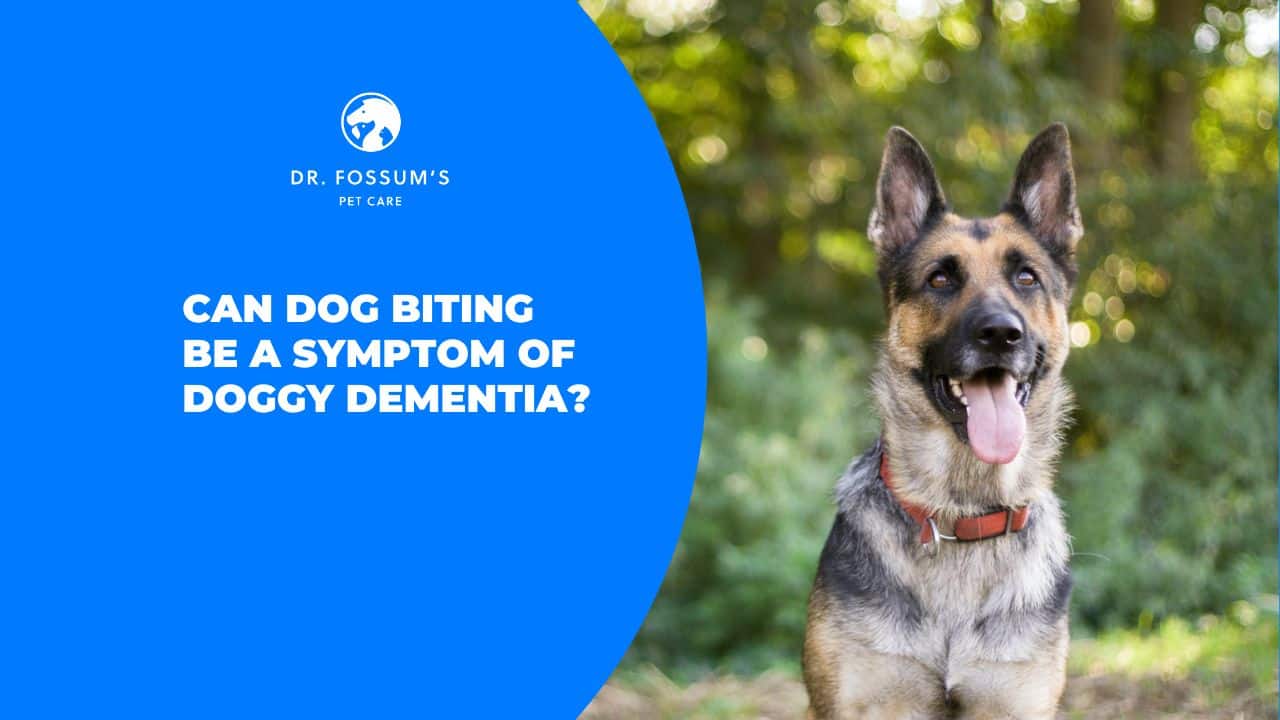- Pet Disease, Pet Health

Can Dog Biting be a Symptom of Doggy Dementia?
Dog biting is a serious issue that can cause physical harm and emotional trauma to both humans and other animals. It can be caused by a variety of factors, such as fear, territorial behavior, or aggression. While training and behavior modification can be effective in reducing the frequency and severity of dog biting, it is important to understand that in some cases, dog biting may be a symptom of an underlying medical condition, such as doggy dementia.
Doggy dementia, also known as canine cognitive dysfunction (CCD), is a neurodegenerative disorder that affects older dogs. It is similar to Alzheimer’s disease in humans, and it can cause a variety of symptoms, including disorientation, confusion, memory loss, changes in personality and behavior, and even aggression.One of the most common symptoms of doggy dementia is an increase in aggressive behavior, including biting. This can be a result of the dog feeling confused, scared, or frustrated due to changes in their brain function. For example, a dog with CCD may become aggressive when they are approached by someone they do not recognize, or when they are unable to find their way to their food or water bowl.
- Other signs of Doggy Dementia include:
- Inappropriate barking (especially at night)
- Urinating or defecating in inappropriate areas
- Forgetting how to do normal tasks
- Untriggered anxiety
- Sleeping more during the day but becomes active and may pace and vocalize at night
- Decreased motor skills
- Stops interacting with family members owner or other pets
It is important for dog owners to be aware of the symptoms of doggy dementia, as early detection and treatment can help slow the progression of the disease and improve the dog’s quality of life. If you notice any changes in your dog’s behavior, such as an increase in aggression or a decrease in their ability to perform basic tasks, it is important to take them to a veterinarian for a thorough evaluation.
In addition to seeking medical treatment, there are also some things dog owners can do to help prevent dog biting in dogs with CCD. For example, it may be helpful to keep the dog in a familiar and predictable environment, with a consistent routine and a minimum of changes to their surroundings. Providing plenty of mental and physical stimulation, such as puzzle toys and regular exercise, can also help reduce the dog’s anxiety and frustration.
CogniCaps by Dr. Fossum’s Pet Care can also aid in enhancing your dog’s brain function and helps supports normal nerve cell conduction and brain activity.
In conclusion, dog biting can be a serious issue that may be related to an underlying medical condition, such as doggy dementia. If you notice changes in your dog’s behavior, it is important to seek veterinary care as soon as possible to rule out any medical causes. With proper diagnosis and treatment, and with the right care and environment, dogs with CCD can live happy and fulfilling lives.
Share this post:
CogniCaps – Canine Cognitive Function Supplement
$59.99 – $109.99 — or subscribe and save 15% Select options



